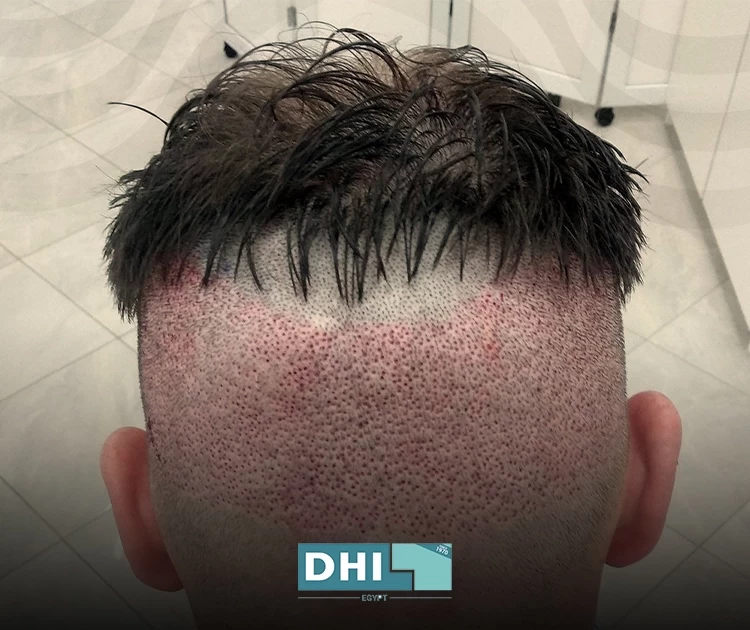Considering hair transplants to address your hair loss? You're not alone. Many people find this option interesting, but it's natural to have questions before taking the plunge. This article will explore some key concerns you might have, including the big one: does transplanted hair grow? We'll answer this and other important questions to help you make an informed decision about whether a hair transplant is right for you.
Before we answer our article's question, “Does transplanted hair grow?" We will go over some other topics you might be thinking about.
Is hair transplant painful?
The thought of surgery often brings up concerns about pain. Is hair transplant painful? The procedure itself is usually done under local anesthesia, which means you’ll be awake but won’t feel any pain in the areas being treated.
Some discomfort might occur afterward, but it’s typically manageable with over-the-counter pain relief. Many patients report only mild soreness for a few days after the surgery.
Is hair transplant permanent?
Is hair transplant permanent? Yes, hair transplants are considered permanent. Once the transplanted hair follicles take root in their new location, they will continue to grow hair naturally for the rest of your life. However, it’s important to note that while the transplanted hair is permanent, you might still experience some hair thinning in other areas over time.
So, what is the outlook for a hair transplant after 10 years?
The outlook of hair transplant after 10 years
While hair transplants are designed to be long-lasting, some people do require additional procedures. There are a few reasons why this might happen.
-
One reason is that hair loss can continue in areas surrounding the transplant.
-
Another reason is that some people may desire a denser result than their initial procedure achieved.
-
Finally, there's a chance the scarring from the first transplant might need to be addressed.
The decision to get a second transplant usually doesn't happen right away. Doctors typically recommend waiting 3-5 years to allow your initial transplant to fully grow in. If you're considering a second procedure from the start, you'll likely need to wait at least a year between them. The good news is that the transplanted hair itself should be permanent. The follicles used come from areas resistant to balding, so they should continue growing throughout your life.
Does transplanted hair fall out?
Does transplanted hair fall out? Initially, transplanted hair may fall out within the first few weeks after surgery. This is a normal part of the process called "shock loss." It’s important not to be alarmed by this temporary shedding. The hair will start to grow back from the transplanted follicles after a few months. Once the new hair growth begins, it will continue to grow naturally, just like the rest of your hair.
read more
forehead after hair transplant
Does transplanted hair grow?
If you are wondering, "Does transplanted hair grow?" The answer is yes, and it will continue to grow throughout your life. It might seem otherwise at first, though, because the transplanted hair goes through a few stages:
-
Within the first month, it's normal for some of the transplanted hair to fall out. Don't worry, this is temporary.
-
Then, between 3 and 6 months, you should start to see visible new hair growth. It may take up to a year to see the full effect, especially around the crown of the head, but after that, the transplanted hair will grow at a normal rate, just like the rest of your hair.
After discussing our question "Does transplanted hair grow," how can you promote hair growth?
How can I enhance hair growth?
To ensure the best results from your hair transplant, there are several things you can do to positively influence hair growth.
-
Maintaining a healthy diet rich in vitamins and minerals is crucial.
-
Foods high in protein, iron, and omega-3 fatty acids can support hair health.
-
Avoiding smoking and reducing stress can have a positive impact on hair growth.
-
Regularly following your post-operative care instructions from your doctor is also essential. This might include gentle washing techniques, avoiding strenuous activities, and using prescribed medications or treatments to support hair growth.
read about
What inhibits hair growth after a transplant?
Several factors can negatively affect hair growth after a transplant.
-
Poor diet, high levels of stress, and smoking can all hinder the growth process.
-
Improper post-operative care, such as not following your doctor’s instructions or engaging in activities that could harm the transplanted area, can impact the success of the procedure.
Avoiding exposure to harsh chemicals and excessive heat from styling tools can also help maintain healthy hair growth.
In summary, transplanted hair does grow and provides a long-lasting solution to hair loss. While there can be some temporary side effects and initial shedding, the overall results are permanent and natural-looking. Understanding what to expect when asking, "Does transplanted hair grow?" can help you feel more confident about undergoing a hair transplant and enjoy the benefits of a fuller head of hair.
If you're considering a hair transplant, consult the experts at DHI Clinics to learn more about your options and start your journey toward regaining your confidence and hair. Contact DHI Clinics today for a consultation.
read also

